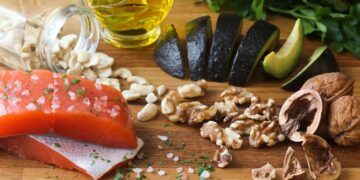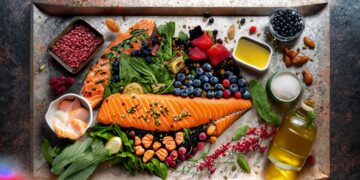Improve the quality of your nighttime rest with these dietitian-recommended better sleep foods.
Eating before your head hits the pillow often gets a bad rap. But can midnight snacks be a good idea? Believe it or not, you might have a better night’s sleep, provided you’re choosing the right foods. Studies show that a diet high in protein, low-glycemic foods, as well as certain antioxidant-rich fruits, can help improve your quality of sleep. We talked with two registered dietitians who gave us the rundown on the best foods to nosh on for that late-night snack fix, along with what you should avoid if you want to sleep soundly.
 Choose Tart Cherries
Choose Tart Cherries
When it comes to improving both the quality and duration of your sleep, a 2021 study has shown that cherries, specifically tart ones, come out on top. That’s because tart cherries and cherry juice are an excellent source of melatonin, an essential sleep hormone that you may be lacking if you’re finding it difficult to stay asleep.
“Cherries also contain the amino acid, tryptophan, which makes serotonin and helps with a calming feeling,” says Nicole Marchand, a Halifax-based registered dietitian and owner of Eat Well Nutrition.
 Drink Dairy
Drink Dairy
In a 2021 study of 950 female healthcare workers, those who ate yogurt for a period of 16 weeks showed a considerable improvement in sleep quality when compared with a control group. “Dairy has tryptophan in it, which helps our body produce serotonin, which can reduce anxiety,” explains Rachel Hannah an Ontario-based registered dietitian and New Balance athlete. “It also has small amounts of magnesium, which can help with sleep.” Fermented dairy like kefir and Greek yogurt may also promote relaxation thanks to the presence of the neurotransmitter gamma-aminobutyric acid.
 Get Cracking
Get Cracking
Free-run, free-range, or organic eggs also get a Grade A for helping you sleep. This may be surprising given most of us typically reach for eggs for breakfast, but Marchand says they are also an excellent source of tryptophan and melatonin, which have positive impacts on your sleep. So whether you enjoy your eggs hard-boiled, sunny side up, or scrambled, now you can safely enjoy this budget-friendly protein option close to bedtime and enjoy a good night’s sleep.
 Go Nuts
Go Nuts
Magnesium is a nutrient that helps regulate melatonin, which is a hormone responsible for helping us sleep. Nuts are a quick and easy way to boost your intake of this important nutrient. “Pistachios and other nuts are a great source of magnesium, along with vitamin B, which also promotes sleep,” explains Marchand.
She also says pumpkin seeds are an unexpected source of tryptophan, which aids in relaxation. So, whether you add a handful of nuts to your salad at dinner or create a nut butter-based sauce—think satay sauce—you’re setting yourself up for a good night well beyond dinner time.
Sweet Spuds
If you haven’t before, you can now consider sweet potatoes your natural sleep supplement. According to experts, this spud has the right amount of complex carbohydrates for your body to release tryptophan, a sleep-inducing amino acid. Sweet potatoes also have the right balance of potassium and vitamin B6, both of which combined help promote your body’s production of sleep-inducing hormones.
 Take Ginger
Take Ginger
Those times when you do indulge a little too close to bedtime, there’s still hope for a good night’s sleep. Commonly used to stave off nausea, ginger also has digestive benefits. Steep ginger root in hot water for a cozy ginger tea (you can add lemon for a vitamin C immunity boost) and you’ll soon be on your way to counting sheep.
About Time
While everyone is different, Marchand suggests eating your last meal about three hours before bedtime, and if you must have a snack, avoid ultra-processed foods that are high in sodium and sugar. Hannah suggests athletes who have eaten their last meal three or four hours before bed have a small protein-rich snack to help curb overnight hunger and promote recovery when training beyond an hour a day.
Alcohol and spicy foods top Hannah’s list of what to avoid right before bed. She also recommends staying away from large high-fat meals because fat slows down our digestive system, which can make us feel overly full right before bed. “Eating increases your core body temperature, which may also affect your quality of sleep,” she says.


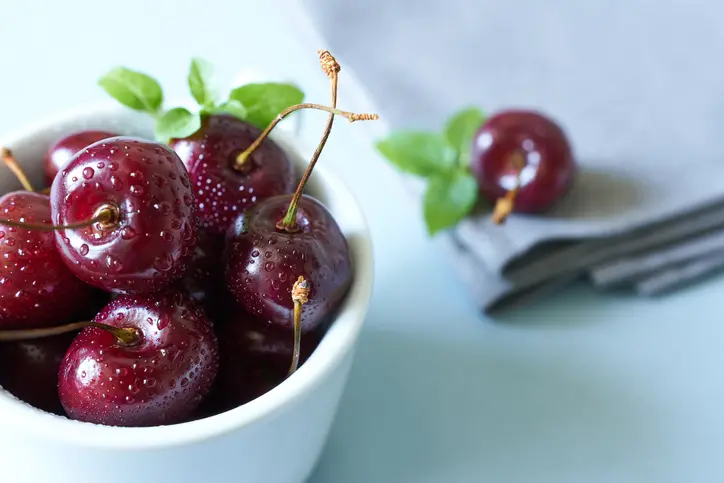 Choose Tart Cherries
Choose Tart Cherries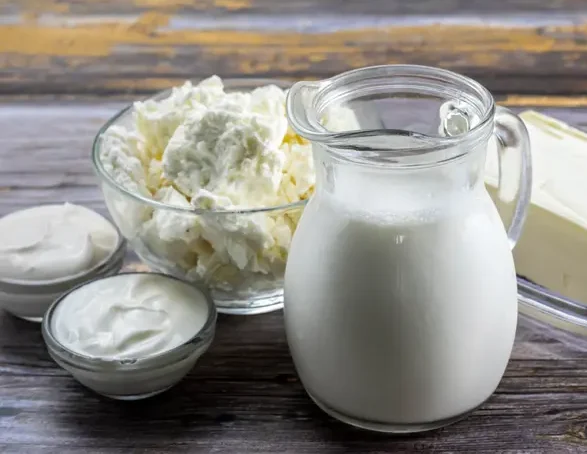 Drink Dairy
Drink Dairy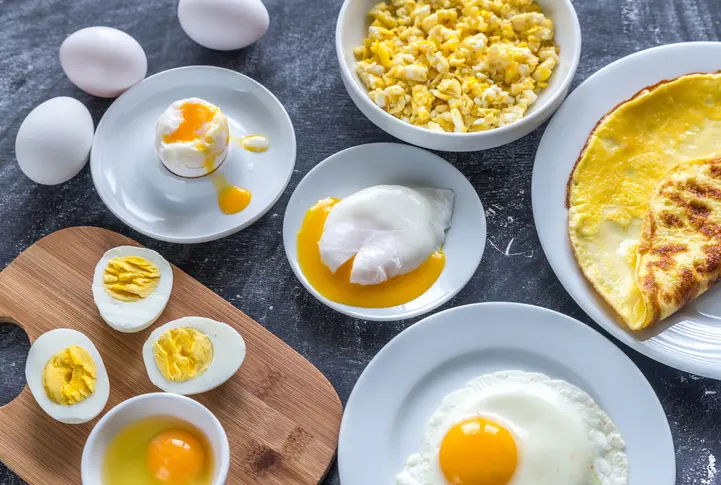 Get Cracking
Get Cracking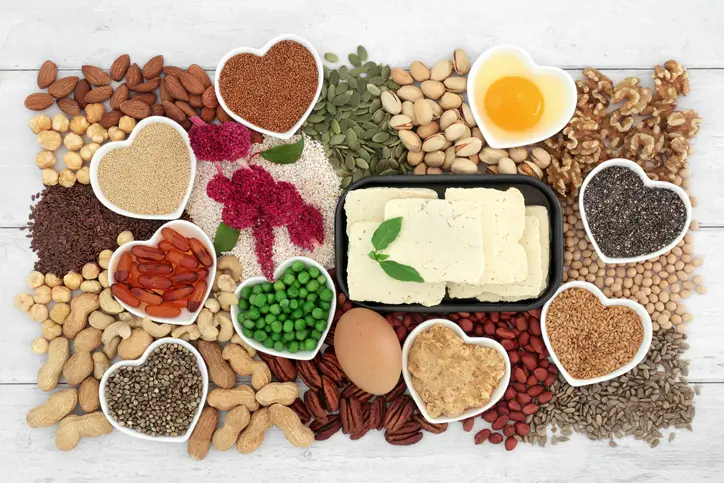 Go Nuts
Go Nuts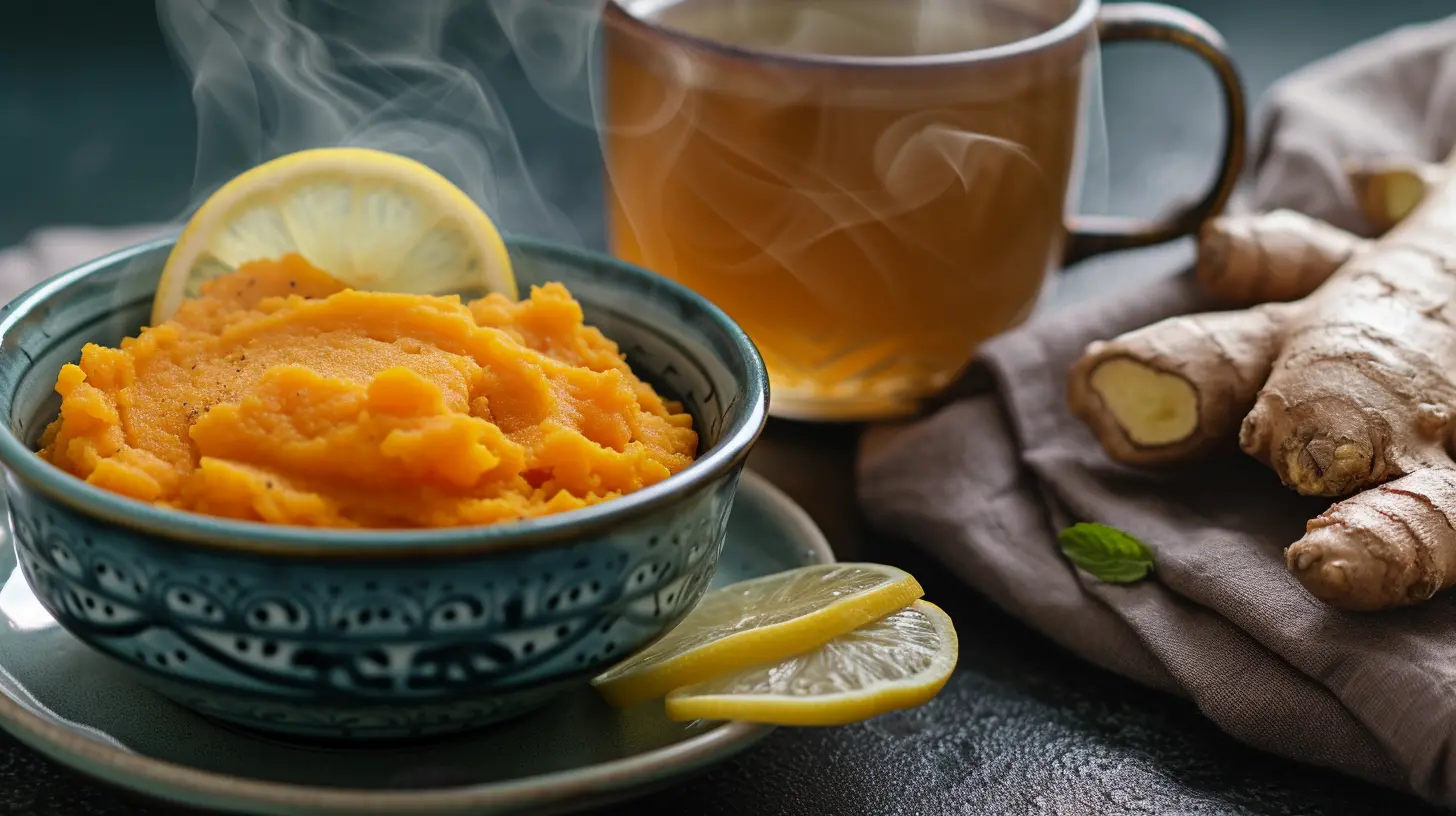 Take Ginger
Take Ginger



